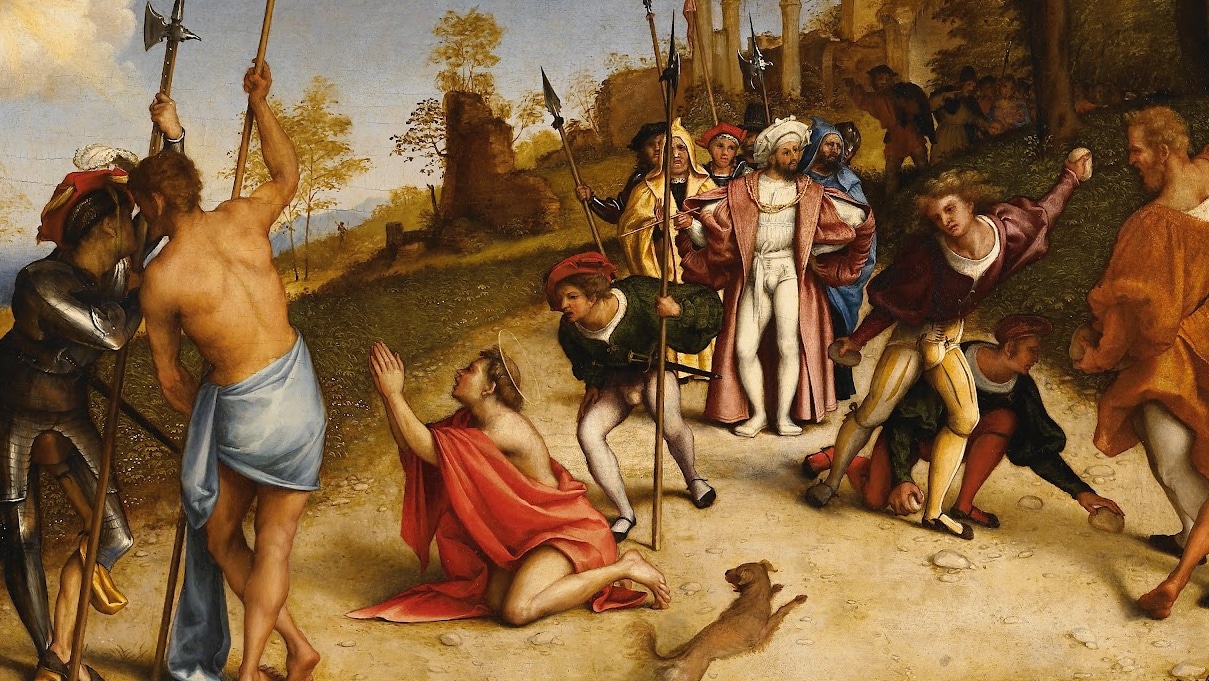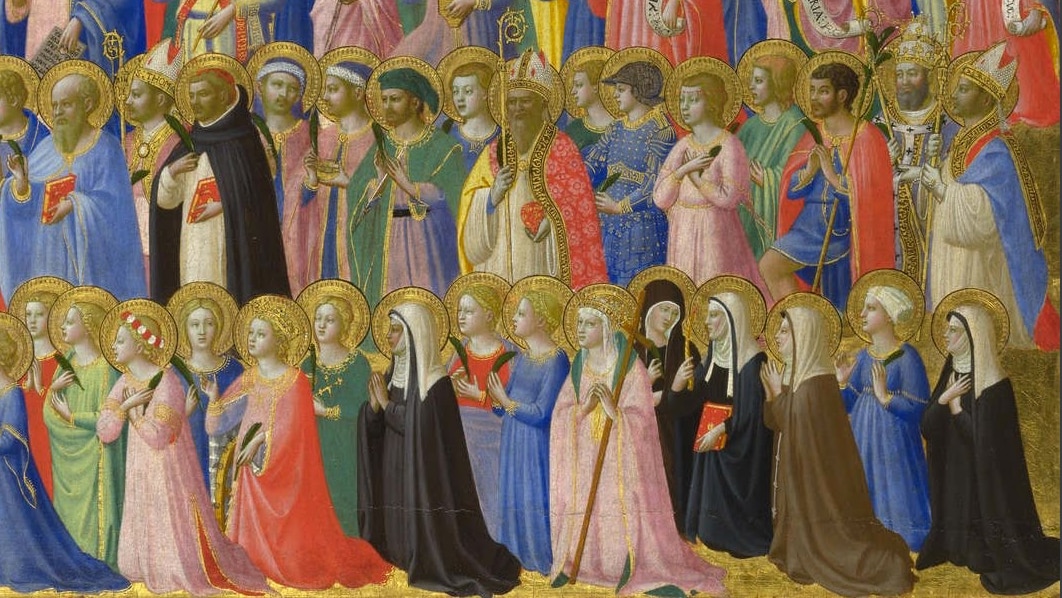When Pope Francis said early in his papacy who are we to judge in relation to homosexuality, he added a layer of complexity, not only to his public perception, but the Catholic Church as a whole. The Bible seems to underscore the plain meaning of his surprising statement. One need only read Matthew 7:2, which reminds us to Judge ye not lest thee be judged. Then there is the metaphorical thought provoking, let he who is without sin, cast the first stone, found in John 8:7.
Add to this the fact that we live in a highly litigious society, where there is a very strong current of social condemnation, dripping with an ironic proscription against Judgementalism. Where do such statements and verses leave the Catholic in the pew?
I had come to my own moral position on most of the above by holding that it is necessary and proper for us to judge the objective behaviors of anyone who breaches our understanding of Christian morality but conversely it is not our role to judge the disposition of the soul of anyone perceived to violate God’s law. The Church calls this the sin of presumption. These distinctions have served me well for me for many years.
All of the above begs the question of public acts committed by fellow Catholics who too often hold positions that contradict even the most basic of moral strictures. The abortion issue serves as the best example of this apparent conundrum.
Such a challenge faced me on Ash Wednesday when my wife and I attended the 7:45 morning Mass to receive our ashes. After we had returned to our pew, I turned to look at the long line and noticed a man, waiting his turn.
Though we had only met once or twice and perhaps shared one general conversation years after our sons had graduated from the same Catholic prep school, I recognized him immediately. He had run for a high county office in the 2018 Democratic primary. His good looks and business experience made him a very attractive candidate but unfortunately the less than worthy incumbent was able to declare victory.
It was a given that the primary was really the election itself because Democrats have controlled our county for several years. During the course of the campaign, the local paper printed an informative article about the challenger.
I had to admit I considered voting for him but was stopped by two bits of information. He was Catholic, which was good, but he was also pro-choice. Perhaps he was exercising what I like to call the Cuomo Dispensation, a euphemism coined by the late Governor of New York to protect Catholics who felt compelled to accept the views of their party over those of their alleged faith. I promised I would never vote for someone like him.
So there he was, waiting to receive his ashes, pretending to be a Good Catholic. Of course, ashes are jut a sacramental, but Holy Communion is another issue. After we received, I had to check to see if he had the effrontery to receive the Body and Blood of Christ.
Something inside me wanted to jump up and cast a stone at him figuratively for being such a hypocrite. But in a number of seconds, I overcame my growing anger and said a prayer for this immortal soul. Was I wrong for feeling that way? Or was the Church not doing enough to remind our politicians of the moral scandal they provide when they pretend to act like one of us when their public actions blatantly contradict Church teachings.
At Xavier High School, I remember a Jesuit father teaching us about the sin of scandal. In my opinion, this politician could easily be accused of committing such a public sin in putting his secular morality above that of the teachings of his Church.
As I implied before, private sins are for the confessional, not public condemnation. Still, there may be some extenuating circumstances. Did this man publicly renounce his views from the election? I had never heard that and had he done so, it would have been headline news as the Democratic Party does not sanction candidates that are not 100% pro-abortion.
My high school class had been in 1959, years before Vatican II changed our perceptions of sin, public and private. Priests used to preach against evils, like abortion and the duty of Christians not to sacrifice moral principles for monetary or political gains.
It was Vatican II that replaced sermons with homilies. I am well aware that they are often used interchangeably, but I think there are nuanced differences that changes their usage. Sermons more often dealt with current morality while homilies pertain more to the scriptural readings of the day and ways to implement them in our lives. In other words, they have lost their bite. I seriously doubt that a consequence of this is that priests have tabled the meaning of scandal and most Catholics have never even heard the term with relation to their faith.
So can this politician be given the benefit of the doubt? As Archbishop Joseph Naumann, the Archbishop of Kansas, and an ardent voice for life used to tell us in St. Louis when he was just Father Joe: Maybe yes! Maybe no! The Democrat Party he owes his allegiance to have since that election pushed the abortion envelope right off the table.
As Cole Porter harmonized now anything goes, even infanticide, which is murder. Is his thinking any different from his party leaders? He has only to tell us and the stain of scandal can easily be blotted out. Or is he just one of millions of Catholics who are, as C. S. Lewis described, such moral cowards, men without chests? There is a quote that is a favorite of mine that is usually attributed to 18th century Irish Parliamentarian, Edmund Burke. Evil happens when good men do nothing.
All of the above should serve as a cautionary tale for an evil that is gradually working its way into America’s culture of death. Euthanasia has already secured a foothold in our toxic culture. Twenty years ago, they were using the same kind of rhetoric they had used in abortion rights after Roe. During that time, middle aged people were subtlety being taught that the elderly had not a right to life— but more, a duty to die.
In retrospect, this laid the bases for the long sanguine road they have booked for us to travel as we age. When and if Universal Health Care becomes a reality, this carefully contrived misnomer, will shortly result in little, if any viable care for the elderly. It will be so much easier to just give us a pill or a shot to ease us into the next life. Though governments don’t care about that. They only want us to leave this life to ease the impossible burden they have created for a system that cannot never work as they had promised.
What is awaiting the elderly is more a dystopia, instead of a socialist paradise, that’s what our culture of death has on its mind? As a mid-septuagenerian, I feel the hot breath of the American future breathing down my neck. We should all feel it. Perhaps we should all start collecting stones in a bag, if only for our own self-defense, before it is too late.









Abortion is an awful sin of our society. But I think Mr. Borst casts a very wide net when he implies that a politician cannot be a “good” Catholic, and should not be voted for, unless he openly and publicly declares his opposition to all things related to abortion. Would that life were that simple! Name your social issue, and I’m sure one can find a Catholic Moral teaching on which to criticize one or the other party’s stance. I believe life is much more complex and nuanced than that. How about we concentrate instead on teaching Catholics to avoid abortion?
Yep. You’re right, Bill…,